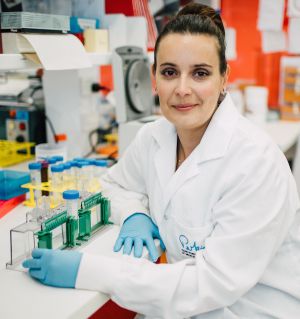
Despite a historic imbalance in gender in science, the number of women in science has been steadily growing in recent years.
Scientific research and discovery are highly stimulating and rewarding careers that many women are frequently drawn to, most often as a result of a positive role model that piqued their interest early in life.
Once the scientific curiosity is stimulated the path towards a career in discovery is paved by a hunger for knowledge as well as the support of mentors and educators. This is the path taken by the women in the Mitochondrial Medicine and Biology laboratory at the Harry Perkins Institute of Medical Research.
This year we celebrate International Women’s Day by recognizing the female scientists in our Institute and their achievements. Professor Aleksandra Filipovska heads the Mitochondrial Medicine and Biology laboratory and she has had the pleasure of working alongside stellar women and men. Her group currently has 12 women who are at different stages in their career all working with a common goal to understand and treat diseases where energy production is impaired.
“We are passionate to uncover new knowledge that will help us provide effective treatments for metabolic disorders, cardiovascular diseases and cancer, said Aleksandra who last year was one of only three West Australians to receive Australia’s most prestigious Senior Research Fellowship from the National Health and Medical Research Council Research (NHMRC).
“We believe that the whole is greater than the sum of its parts, where discoveries and treatments are our ultimate goal”. The team is composed of women scientists with diverse skills from computer science, genetics to physiology and clinical sciences.
“Our strongest asset is the mentoring and support network that we have created to nurture each other on a daily basis. This comes at every stage of our careers, from our first exposure to laboratory research to publishing our breakthroughs and striving to improve health”, added Professor Filipovska.
The uplifting and stimulating work environment in the team has contributed to recent breakthroughs in heart and metabolic diseases. The STEM women in this team have been recognized with awards for their publications, early career fellowships and grants that have increased their productivity and drive.
Members of the team said they owe their achievements to the support that they have received from their families, loved ones and their team.
“I am honoured and thrilled to come to work every day and work alongside such fantastic scientists
We celebrate the successes of our women scientists today and are grateful to our male colleagues for their continued support and recognition”, said Professor Filipovska.
Nearly 40% of the scientists at the Harry Perkins Institute are women as are 60% of the Executive.
